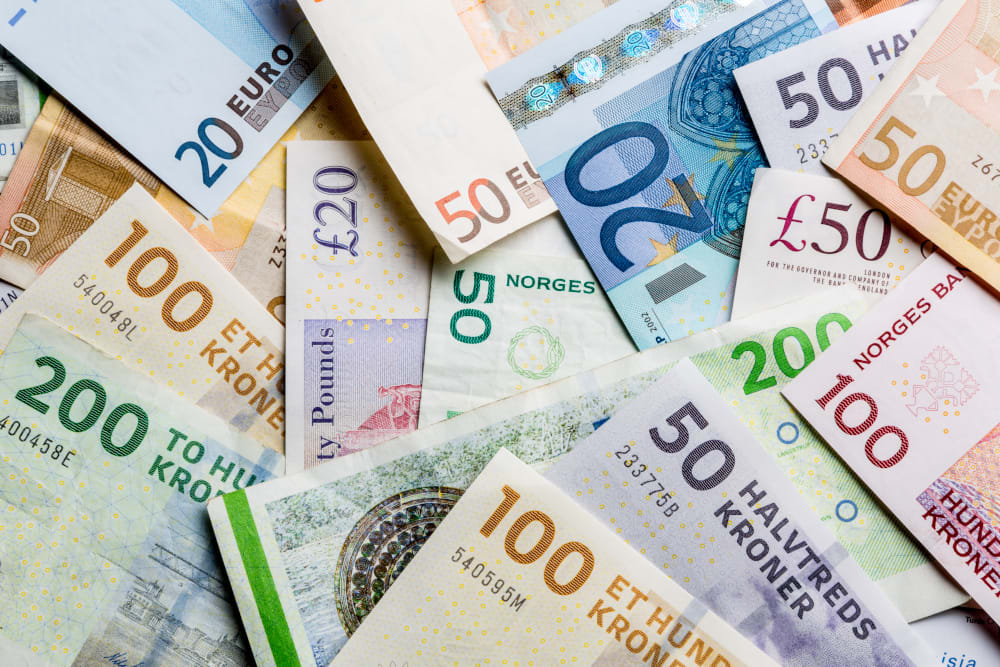Show me the money – Bank blocks predicted to drive ECM activity in tough market
The market rally of early summer ended in earnest with major indices posting large losses for the past fortnight, but there are still opportunities for sellers, particularly for owners of bank stocks.
The European Stoxx 600 is down around 7% since 16 August and the US S&P 500 has fallen 9.2% over the same period, erasing many of the gains from the “bear market bounce” in mid-summer.
But bad markets don’t necessarily mean zero ECM activity, and alongside IPO outliers such as the listing of Porsche, sources expect a healthy flow of block trades, with Barclays [LON:BARC] kicking off the season.
Last week, 1 September, Barclays sold the last of its shares in ABSA Group [JSE:ABG], formerly Barclays Africa. A 17% rise in the bank’s share price between 14 July and Wednesday (31 August) allowed the British bank to exit its position in the company at a small premium to its last sell-down in April.
“The ABSA deal showed that there are windows for deals to get done, it is obviously market dependent on a case-by-case basis, but things will still be possible,” said an ECM banker.
The potential benefit of rising rates for the global banking sector and the consequent outperformance of many bank stocks in relation to their underlying indices adds strength to the argument.
ABSA has set a strong example, trading up 5.9% from the offer price on the deal, which was discounted at 5% on the day.
Three further ECM bankers and an ECM investor all highlighted bank stocks as the most likely candidates for block trades.
Governments could be at the helm of the trend targeting a stable window to sell their holdings, the second banker said citing the UK, which retains a 48.5% stake in NatWest [LON:NWG] and Ireland, which has a 63.5% holding in AIB [UB:AIBG]; a third banker confirmed market chatter around both names.
“There are several privatisation programmes out there where governments would clearly like to get on with if they can get a given price,” the second banker said.
The Dutch government might also be keen to restart its sell-down of its stake in ABN Amro [AMS:ABN], the investor suggested.
The UK Treasury declined to comment citing ‘market sensitivity’, and the governments of Ireland and The
Netherlands did not respond to requests for comment.
The UK government has a trading plan in place, extended in June until August 2023, to coordinate a measured sell-down in NatWest in market trading. But this does not preclude the government from using other options to raise funds.
The trading plan has raised GBP 1.6bn for the UK between June 2021 and June 2022, only just over the GBP 1.1bn raised over a single night in May.
The government has publicly said that it will not sell NatWest shares until it is “value for money to do so and market conditions allow.”
But given NatWest’s stock is trading at GBP 2.55 a share – well above the last block – chances of a quick sale grow, especially given the cash required by HM Treasury to help finance support for the country’s cost of living crisis.
The Irish government has already sold AIB shares this year and will be able to do so again after its lock-up agreement ends on 28 September, although this could be waived by Goldman Sachs and Goodbody, the banks on the last block.
Will corps and IPO sponsors take the leap?
Outside of banks, sources say they think that other corporates could use an uptick in reference stock prices to sell some of their non-core crossholdings, which they have been holding onto because of market volatility.
“There has been a reassessment of target prices by vendors who are realising that whatever they had in mind on Jan 1 isn’t relevant anymore,” said the second ECM banker.
Many corporates are still assessing their financial strength in the wake of a faltering economy, another banker said, adding that selling non-core holdings made “rational sense”.
Another group slated to return to market is sponsors of the 2021 IPO crop, who still need to exit their positions.
In May, the ECM Pulse reported that there were several sellers considering cutting their stakes in some of 2021’s IPOs at levels well below the IPO selling price.
Later in the same month, the sellers on the IPO of online greeting card company Moonpig [LON:MOON] did just that, selling an GBP 80m chunk of shares in the company at GBP 2.50 each, below the GBP 3.50 IPO price and the level achieved in previous blocks.
This news service reported at the time that the banks on the deal – Citi, JPMorgan and Peel Hunt – pitched the trade after they found a new investor interested in buying into the stock.
“There is a big question hanging over those 2021 IPO sponsors and what they do with those holdings now,” the second banker added. “But many know that last year was likely the high-water mark.”










